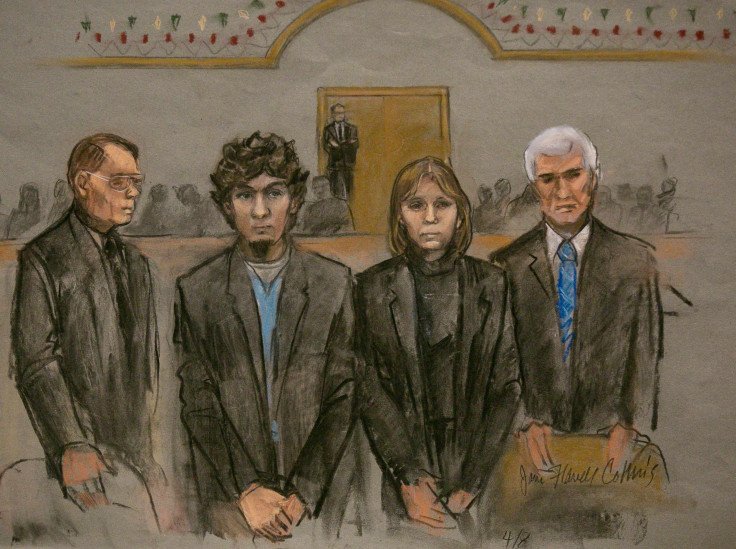Boston Marathon Bombing Trial: Sentencing Phase Begins, Death Penalty Possible For Dzhokhar Tsarnaev

The jury in the Boston Marathon bombing trial was set on Tuesday to begin hearing arguments about whether Dzhokhar Tsarnaev, the 21-year-old Chechen American they recently convicted on all 30 criminal charges, should get the death penalty. Opening statements in the sentencing phase of the high-profile capital murder trial were scheduled to start at 9 a.m.
The Associated Press reported that Tsarnaev's defense attorneys would likely play up the influence his older brother, the late Tamerlan Tsarnaev, had in organizing and carrying out the plot that left four people dead and more than 260 wounded on April 15, 2013. The duo set off pressure-cooker bombs at the finish line of the annual Boston Marathon before carjacking a vehicle, killing an MIT police officer and engaging in a shootout with police in which Tamerlan was fatally wounded. Officials said the brothers were motivated by Islamist radicalism.
“The sentencing phase is going to be fascinating,” J. Reid Meloy, a San Diego psychologist and criminal consultant, told the Boston Herald. “You’re going to hear from doctors about his history and you’ll get a tremendous amount of data. The doors are going to be thrown wide open on him.”
The jurors found the younger Tsarnaev, 19 at the time of the attack, guilty earlier this month. Now, they will decide whether he spends life in prison or gets the death penalty for the 17 counts that carried that possibility. The Boston Globe reported the sentencing part of the trial could take up to four weeks. "At the end of the day, the jury goes in the room, closes the door and decides: Should we show mercy or not?"
Last week, the family of 8-year-old bombing victim Martin Richard published a newspaper editorial calling for prosecutors to take the death penalty off the table. They said they feared a lengthy appeals process, which would "prolong reliving the most painful day of our lives," according to WBUR.
© Copyright IBTimes 2024. All rights reserved.






















